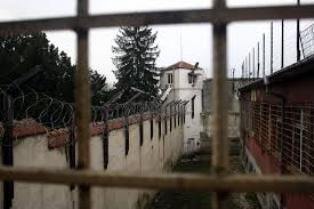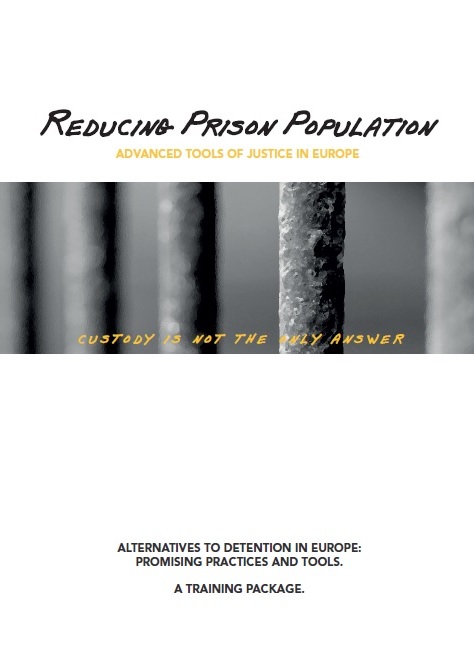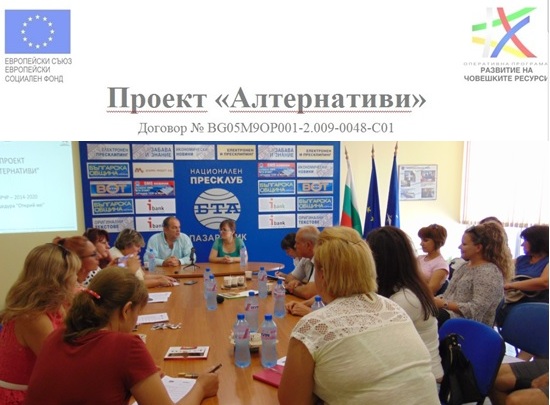Interviews with people at leading positions in prisons and in Directorate General “Execution of Punishments” (DGEP)
 The activity is a survey examining the needs of trainings for personnel in prisons in the country whose work is directly related to dealing with people with psychiatric disorders and low intellectual capacity. The survey includes all 12 prisons in the country and Reformatory “Boychinovtsi”. The activity assists the development of a more precise picture of the existing needs of the target group.
The activity is a survey examining the needs of trainings for personnel in prisons in the country whose work is directly related to dealing with people with psychiatric disorders and low intellectual capacity. The survey includes all 12 prisons in the country and Reformatory “Boychinovtsi”. The activity assists the development of a more precise picture of the existing needs of the target group. The semi-structured interviews with people at leading positions in prisons and in DGEP were conducted by two experts. After that a report with a summary of the data from the surveys was prepared.
The interviewed managers working in prisons and in DGEP have been in the penitentiary system for 10-16 years and the period of holding the leading position has been from one month to sixteen years.
According to them, the number of imprisoned people with psychiatric disorders is not low as a whole and this hinders their whole activity of re-socializing which is implemented in the penitentiary institutions. They also think that the number of people with psychiatric disorders, who have been accommodated in their institutions, is between 5%-80% from all imprisoned people. At the places where the number is 5%-15% re-socializing is still possible, but at those places where the percentage is higher, this is extremely difficult.
According to the majority of the interviewed, the imprisoned people with low intellectual capacity are between 45%-75%. The people with psychiatric disorders and the people with low intellectual capacity at the places of imprisonment create pressure in the community and break the inner rules. The prisons do not have the necessary conditions for people with psychiatric disorders because the doctors cannot always help them adequately. This is why these people have to often be taken out of prisons in order to receive timely and adequate doctor’s help.
According to the interviewed, the people working in places of imprisonment are as a whole prepared to work with individuals with psychiatric disorders and low intellectual capacity since they have studied psychology and pedagogics. They believe that there is a system of diagnostics of intellectual level which is applied in prisons, but this system is not integrated for everyone. Others point out the existence of an external system of diagnostics of intellectual level which is applied by specialists working in the Inspectorate of Education.
According to the majority of the interviewed, DGEP does not have specialized assessment or programmes for individuals with psychiatric disorders available. Different methods are used in psychology work and when necessary, a consultation with a psychiatrist is done. They believe that it would be much better if every prison has such a specialist. This is why presently there is a vacancy but in most of the prisons it is not occupied.
The conclusions are that in order to optimize the direct work with people with low intellectual capacity and psychiatric disorders in the conditions of the penitentiary system, it is necessary to: improve the material basis and the equipment in prisons; make the necessary legal changes; provide well-prepared staff – psychiatrists, psychologists; constantly increase the qualification of the personnel in prisons in their work with the target groups; increase the number of meetings for exchange of experience; create a multifunctional team (Inspectors “Social Activity and Educational Work”), psychologist, psychiatrist, and trained workers from the warders’ stuff), etc.










